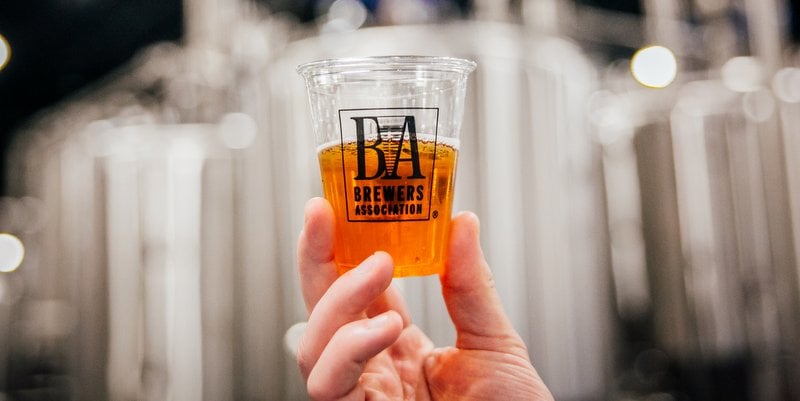
More than 7,000 beer-loving folks from all around the globe, descended on the Mile High City of Denver, Colorado this month, for the Craft Brewers Conference (CBC). While the CBC typically enjoys more than double this year’s attendance, it’s understandable with Covid-19 concerns, this year’s budgetary limitations, and traveler concerns, regarding Covid variants, vaccination cards, and required masks – many had to choose to sit this event out.
For myself and my team, our excitement to travel and see clients and friends outweighed any apprehension. And just like that, our 2-year travel hiatus was broken as we left New York for our tenth consecutive CBC. While there, we got to speak with a lot of breweries (socially distanced, of course), and here are our top three takeaways:
1. Year of the Brand Refresh
The pandemic forced breweries to pivot or perish. The quarantine provided much-needed downtime for brewers to examine their current branding, messaging, design, and positioning. Many breweries are discovering it’s a good time to redefine their core brand, and bring their marketing, sales and packaging into better alignment with their post-Covid strategic goals.
The sheer volume of 8,700+ breweries operating in the USA creates an incredible level of competition, and with 1,200 more breweries “in planning”, the demand is ever-increasing. The competition is not only mounting from within the beer industry either, but also the massive surge of new alcoholic canned beverages. Hard seltzer, tea, soda, cider, spritzers, wine, THC, and ready-to-drink cocktails are providing an overwhelming amount of choice to the consumer, sub-dividing tastes and creating new preferences, all of which means marketing individual brands is more difficult than ever.
To overcome these marketing hurdles, breweries need to experiment with new marketing channels and new content in order to break through the incredibly dense clutter facing consumers in the adult beverage space today.
2. Contactless technology is here to stay
The post-pandemic era pushed breweries to accommodate shifting in-person consumer behavior with critical new needs like adding outdoor seating, controlling indoor seating limits, ordering food and drink online, and providing contactless payment.
Breweries had to become tech–savvy quickly by adapting their websites and taprooms with new hospitality technologies to meet ever-changing local and state ordinances, and to make their customers feel safe, comfortable, and enjoy their visit.
Everything from specially designed point-of-sale software to smart kegs, to NFC business cards are now being employed. Brewery technology, and the important data it yields, has become critical to informed brewery navigation, and growth.
Marketers need to embrace the new on-premises dynamics and show in their materials the ways these new technologies and processes are helping make the customer experience faster, safer, and better.
3. Direct-To-Consumer (DTC) is here, but staying power unclear
Convenience is still one of the most important consumer factors for purchase, but delivering beer in America since Prohibition is still tricky with a very strict Three Tier legal system.
Over the past few years, the DTC space for online sales and delivery for alcohol was already growing. Companies like Drizly and Tavour who hold specialized alcohol distribution licenses were able to aggregate beers from breweries across the country and move these beers across state lines directly to online buyers who ordinarily would not have access to them.
However, since the pandemic, many states have temporarily lifted restrictions on a brewery’s ability to ship beer directly to their consumer. This has allowed breweries to take online orders that can be picked up “curbside” at the brewery or delivered directly to the customer locally.
Marketers need to incorporate DTC as a larger component of their marketing activity, but one that is flexible as the long-term legislature on Direct-To-Consumer is blurry and could expire.
– – – –
Jim McCune is a craft beer expert and director of the Craft Beverage Division of EGC Group.




[…] Craft Brewing Business. Three craft beer industry trends heading into 2022. https://www.craftbrewingbusiness.com/featured/three-craft-beer-industry-trends-heading-into-2022/ […]